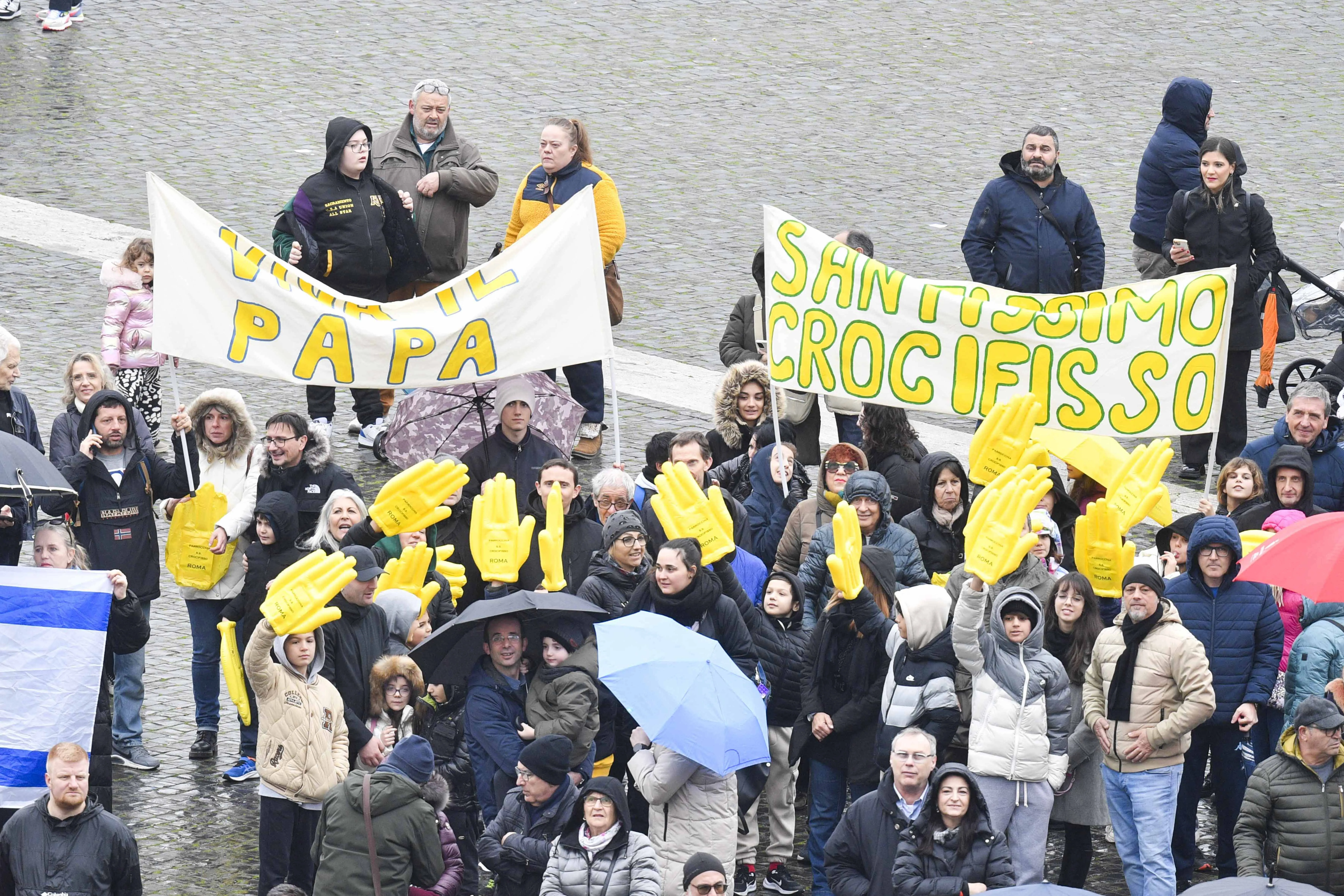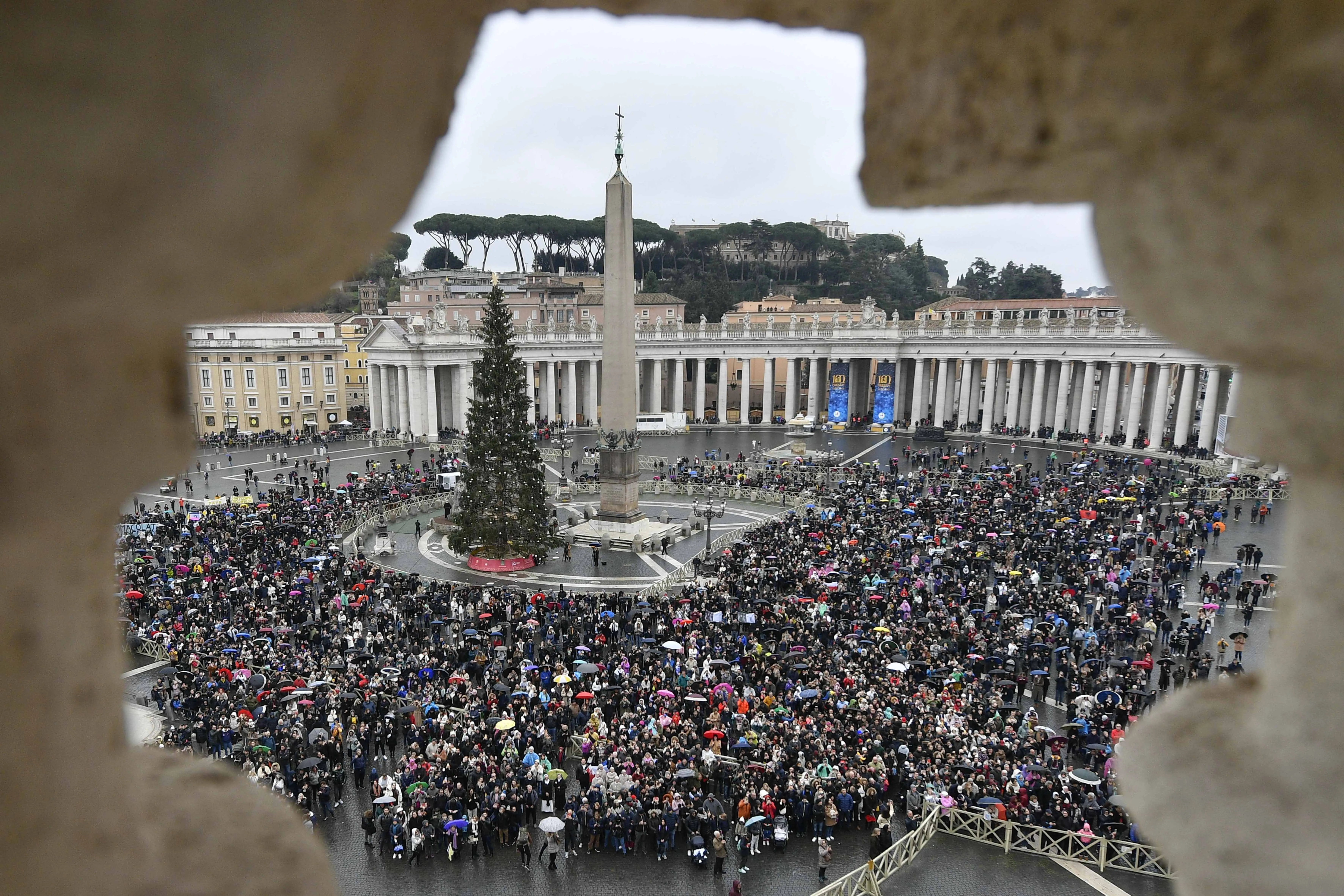
Washington, D.C. Newsroom, Sep 14, 2023 / 09:36 am (CNA).
Pope Francis on Thursday announced the appointment of Father Antonio Spadaro as the undersecretary for the Dicastery for Culture and Education, a position the Jesuit priest will take after over a decade leading an influential Catholic journal in Rome.
Spadaro will assume office on Jan. 1, 2024, the Vatican said in an announcement. The priest had previously served as the editor of the Jesuit-run La Civiltà Cattolica for 12 years.
Spadaro, known popularly as “the pope’s mouthpiece” for his regular outspoken defense of the Holy Father, had announced early on Thursday that he was leaving La Civiltà, a decision he said came about from his “Jesuit superiors” that had been “agreed upon one year ago.”
As editor, the priest has sometimes generated controversy such as with his co-authorship of a 2017 article in which the writers criticized so-called “value voters” in the United States who traffic in an “ecumenism of hate.”
The Dicastery for Culture and Education was formed last year after the merger of two other departments, the Pontifical Council for Culture and the Congregation for Catholic Education.
The Vatican says that the cultural wing of the dicastery is “dedicated to the promotion of culture, pastoral activity, and the enhancement of cultural heritage.”
The educational division, meanwhile, works worldwide with bishops and Church authorities to ensure that “the fundamental principles of education, especially Catholic education, may be welcomed and better understood, enabling them to be implemented contextually and culturally.”
The dicastery as a whole “works for the development of people’s human values in the context of Christian anthropology, contributing to the full realization of Christian discipleship,” the Holy See says.
The Italian-born priest said his tenure at the magazine “has been a challenging responsibility that I have lived with enthusiasm since 2011.”
He thanked the Jesuit leaders and contributors to the periodical who “have collaborated to build the network of a magazine that is now fully international.” He described them as “a solid foundation for the future.”
The Vatican in its announcement noted that Spadaro was already a “consultor” of the dicastery as well as “an ordinary member of the Pontifical Academy of Fine Arts and Letters of the Virtuosi al Pantheon.”
Spadaro in his resignation announcement indicated he was ready to leave his long-held post at the magazine. “Twelve years is the right time to give the best without repeating yourself,” he said.
If you value the news and views Catholic World Report provides, please consider donating to support our efforts. Your contribution will help us continue to make CWR available to all readers worldwide for free, without a subscription. Thank you for your generosity!
Click here for more information on donating to CWR. Click here to sign up for our newsletter.







Perhaps something should be said about entropy and institutional leveling. By departing La Civiltà Cattolica and joining the Dicastery for Culture and Education, does Fr. Spadaro improve the magisterium average IQ of the former while depressing the magisterium average IQ of the latter?
And, what will be the agreed dialect between this papal “mouthpiece” and Fernandez as the papal “ghostwriter”?
Perhaps we do have it backwards Beaulieu.
Fernández is the mouth💋 and Spadaro is the brain 🧠 of the one “head over all things for the church.”
https://www.ncregister.com/news/archbishop-fernandez-outlines-his-vision-as-the-vatican-s-new-doctrinal-chief
Porno-mysticism and Georgetown. Heart and head.
Fearless Reverend Antonio Spadaro is blessed with a creative and constructive mindset. His best is yet to come. The Dicastery for Culture and Education has the right man in the right place. Wishing the dynamic and forward looking Padre divine blessings.
His understanding of Christianity in the U.S. is certainly creative. Not accurate or constructive, but creative. Same with math.
About “mindset!” And, too, about the, yes, defensible merger of complementary “culture” and “education,” yours truly still recalls an academic panel discussion in 2008 between a Dominican from the Western Dominican Province, a Muslim interreligious studies member from Loyola-Marymount in Los Angeles, and an evangelical Christian, obviously “ecumenically” aligned with the latter.
The agreed topic was the fit between Faith and Reason…
But, the conspicuous Islamic diversion was to continually migrate the focus toward “culture” (and away from “education”?). Culture, as within assimilative Islam, e.g., the monotheistic and above-question Qur’an which is part Pentateuch, part New Testament, part Arabian warrior cult, and part trans-tribal folk hero. As part of the diversion, the panelist even interjected a tape of Muslim young musicians playing Western rock music.
The self-understanding of very sectarian Islam is as an egalitarian and “congregational theocracy.” We might say, like a fragmented “polyhedron” Church shaped more by an inscrutable Holy Spirit than centered on the incarnate Jesus Christ. Contrast egalitarian Islam, then, with the Church’s sacramental clergy, and “hierarchical communion”—the revealed self-understanding of the apostolic Church (Lumen Gentium), yet in no way excluding the People of God.
But, if “pluralism” of religions means historical “convergence” rather than Christian “conversion,” then how might we drift unwittingly and yet institutionally toward this outcome?
Well, the devolution first might involve ambivalent appointments to levelized dicasteries, as in demotion of the Congregation for Doctrine of the Faith and then merger of culture with education? Second, with “facilitator” bishops (imams?), perhaps an exercise in “inverted pyramid” consensus-building? In Islam this option is called Ijtihad. Third, when the potpourri of recommendations is received on high, then possibly strategic silences (as with the dubia)? And, fourth, synodality/ijtihad as part of an indeterminant “endless journey”? Islamic ijtihad is not binding on future generations, but can be “abrogated,” as under Western process theology now feeding on the plagiarized language of Thomas Kuhn’s natural sciences: “paradigm shifts.”
Who needs, yes, “not-a-parliament” Synodality when you can have Ijtihad? But, as we say, and in freedom from “mindsets,” only a thought experiment…